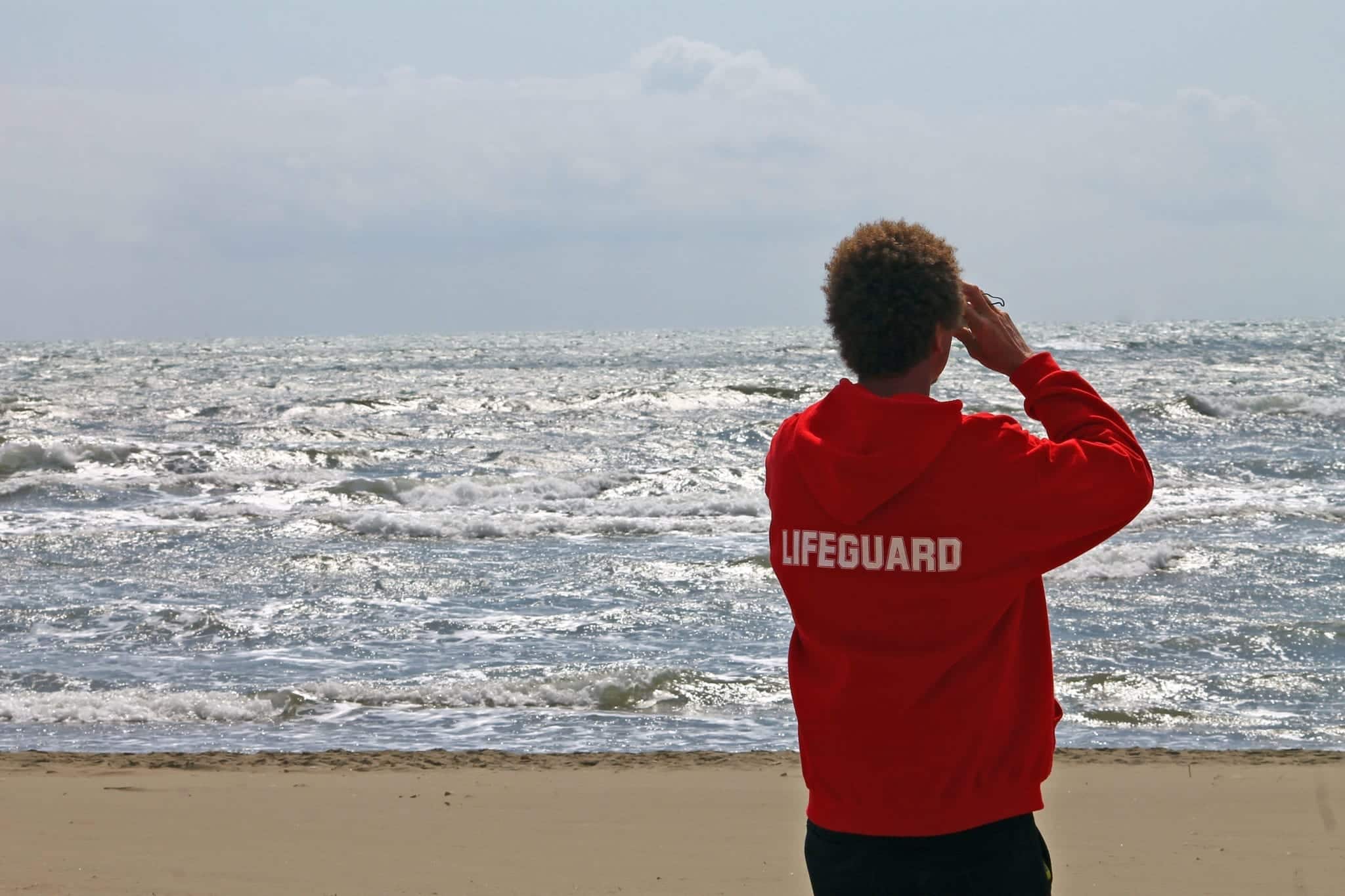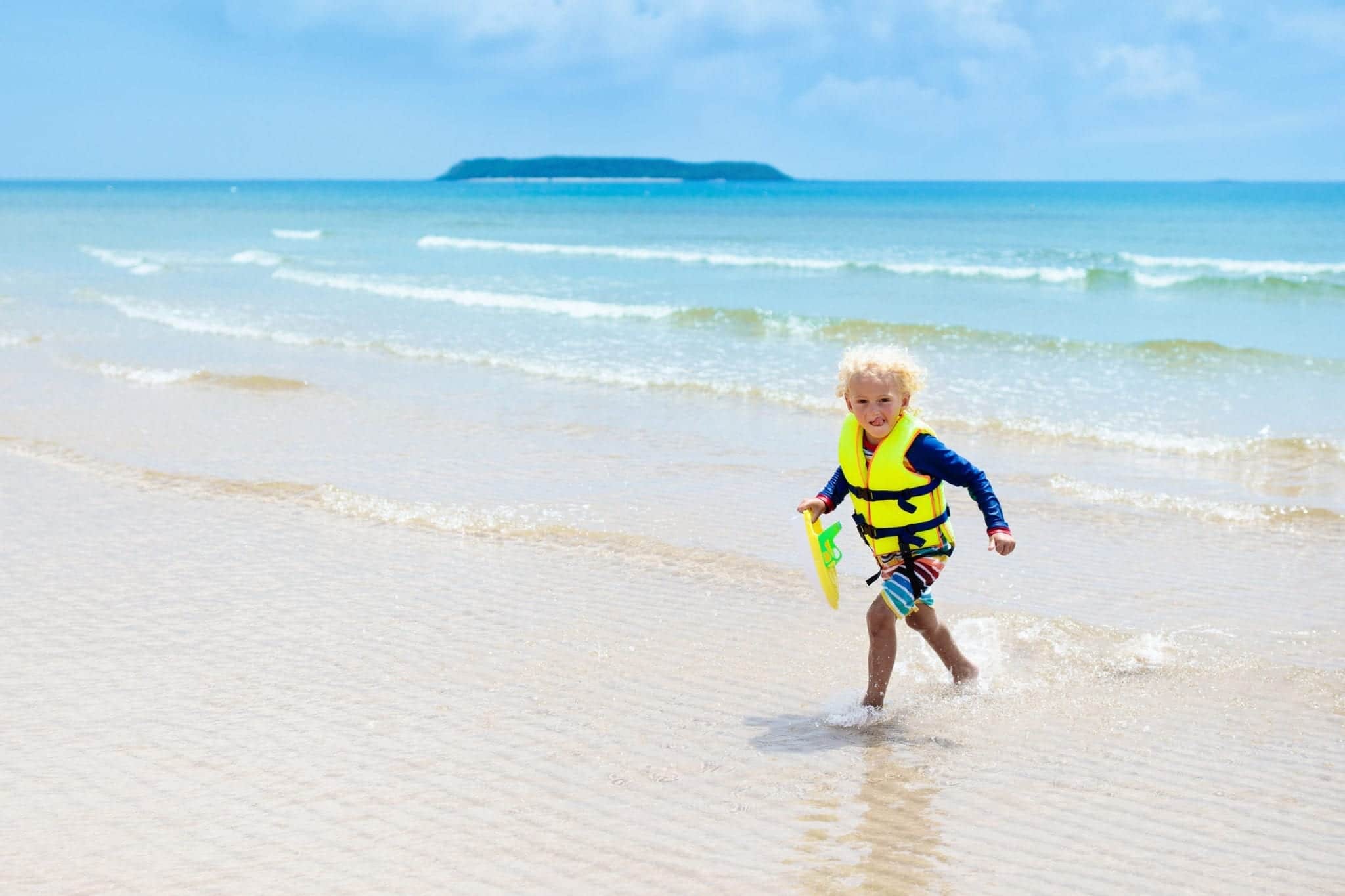Tourists from all over the world flock to Florida’s legendary beaches. Florida waters are warm and relatively calm, so are inviting to swimmers of all ages, especially in the summer heat.
Unfortunately, that family trip to the beach can also be a dangerous one if you don’t take the right safety precautions. Drowning is a leading cause of death for young children, nearly 750 children lost annually. Although swimming pool injuries are some of the most common, many of them happen out in open water such as oceans, lakes, rivers, and ponds.
To help keep Florida families safe this summer, we’ve put together a few beach safety tips so that you can reduce the risk of drowning and other water injuries.
Florida Parents, Get Your Kids Into Swimming Lessons First
All children should be taught to swim at a young age. It’s never too early to begin getting your kids familiar and comfortable with the water. The essential skills taught in swimming lessons could save your child’s life.
Even if you know how to swim yourself, it’s advisable to take your kids to professional swimming lessons. Formal lessons often help kids pay attention, and the swim instructors will know which skills to teach, and how to help your child master them.
The Five Water Skills Florida Kids Need
Before taking your children to swim, especially in open water at the ocean, you should make sure that they know the five essential water survival skills. Your children should be able to:
- Step or jump into water over their head and return quickly to the surface
- Turn around while swimming and orient to safety
- Float and/or tread water
- Breathe while swimming, combining breathing with forward movement
- Safely exit the water
Most swimming instructors will know these five essential skills and make sure that your child has mastered them. However, it’s also helpful to confirm with swim instructors that these skills will be taught, and verify that your child has mastered them before hitting the beach.
Supervision Is Essential at Florida Beaches
Children should be watched at all times on the beach, especially if they’re in the water. Designate a responsible adult as the “water watcher.” This person should be watching the water at all times, and not distracted by conversation or cell phone games. However, the water watcher should have a phone nearby to call for help if needed.
If possible, it’s best to swim at beaches with plenty of lifeguards on duty. These professionals can step in for water rescues and first aid. On unguarded beaches, it may be too late by the time help arrives.
Check For (and Heed) Florida Swimming Advisories
Before hitting the beach, check to see if there are any swimming advisories. These may be available online, and will be posted at public beaches. These can include rip currents, dangerous wildlife, water contamination or other hazardous conditions.
If there’s an advisory posted, it’s best to be on the safe side and stay out of the water altogether. If the advisory is for contaminated water, it’s best to also avoid contact with sand too — especially at the water’s edge. Pathogens can actually persist in the sand longer than in the water itself.
Watch the Ocean in Florida Before Getting In
Children are often excited and over-eager when visiting the beach, and may want to charge into the water without a second glance. However, it’s best to watch the ocean for at least 15 minutes before getting in.
Look to see if there are lifeguards on duty, and check for posted red flags or swim advisories. Watch for big waves, and see if other visitors are getting (and staying) in. If other people are swimming, see how they’re getting in and out of the water, and how far out they seem to be going. Watch for other hazards such as rocks and rip currents.
Avoid the Water after Florida Storms
During a heavy rain or storm event, contaminants are washed into the watershed from both river and stormwater discharges. Wastewater may also overwhelm treatment facilities, necessitating sewage bypasses.
Water quality sampling results are not available for 24-48 hours after testing, so unless the beach is closed as a precaution, advisories may not be posted for a few days. We recommend avoiding the water 3-4 days after storms.
Always Face the Ocean in Florida
Children should be taught never to turn their backs to the ocean. Facing the ocean helps kids spot waves before they roll in and avoid being knocked down.
Life Jackets for Small Children in Florida
Children under the age of 5 should always wear properly-fitted life jackets, even when wading into shallow water. Young children can easily slip and fall, and be carried out into deeper water by the waves more quickly than you think.
Observing these simple safety precautions can help prevent serious or even fatal injuries for your family. Enjoy a safe and healthy summer with plenty of time in Florida’s beautiful waters!
About the Author:
Andrew Winston is a partner at the personal injury law firm of Winston Law. For over 20 years, he has successfully represented countless people in all kinds of personal injury cases, with a particular focus on child injury, legal malpractice, and premises liability. He has been recognized for excellence in the representation of injured clients by admission to the Million Dollar Advocates Forum, is AV Preeminent Rated by the Martindale-Hubbell Law Directory, enjoys a 10.0 rating by AVVO as a Top Personal Injury Attorney, has been selected as a Florida “SuperLawyer” from 2011-2017 – an honor reserved for the top 5% of lawyers in the state – and was voted to Florida Trend’s ”Legal Elite” and as one of the Top 100 Lawyers in Florida and one of the Top 100 Lawyers in the Miami area for 2015, 2016, and 2017.
 Your Guide to Florida Bad Faith Insurance Claims
Your Guide to Florida Bad Faith Insurance Claims 


















